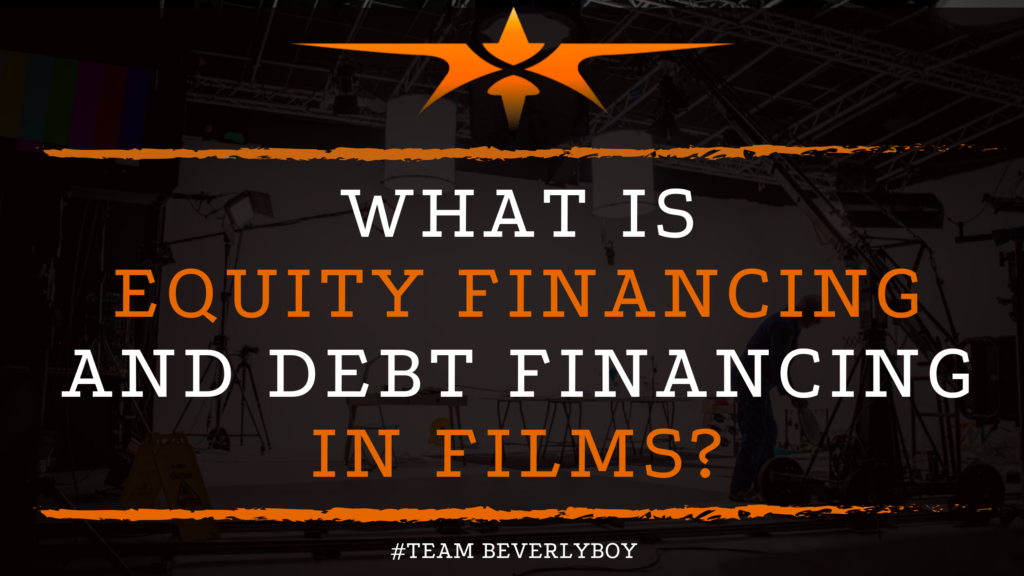What is Equity Financing and Debt Financing in Films?
Various forms of financing for film exist to support producers. All in their efforts to bring a film idea from initial concept to full-scale production and distribution. The sources of funding for a film will vary greatly from project to project. The most common types of financing include debt financing and equity financing. Say you’re new to financing a film production. You’re probably wondering. What is equity financing and debt financing in films?

At Beverly Boy Productions we specialize in the full-scale production and distribution of short films. In addition to feature films and a variety of other types of film projects.
To help you understand how equity financing and debt financing in films works? We’ve put together this guide.
Equity Financing for Films
Anytime a filmmaker puts for their own interests in the film, or the film company, as collateral in exchange for film funding we call it equity financing for films.
Equity financing distributes the risk of the project. This is done by providing a return to the investor only if the film shows a return.
For Example
Therefore, say a filmmaker were to offer 50% of their corporate interest to the investor. As equity for financing if the film is a failure. The investor loses his investment.
However, if the film is a success? The investor will receive 50% of the profit. Because their investment was backed by 50% of the corporate interest the producer had in the film.
Debt Financing for Films
Debt financing is a bit more like the typical bank loan. In which funds are provided for a film in exchange for a promissory note agreeing to repay the loan. Banks profit from debt financing for films through the interest that is charged on the loan.
A risk value is assessed on the borrower based on their credit and other factors. But regardless of whether the film project is a success or a complete failure, the bank expects the loan to be paid back.
With debt financing, there is no profit sharing or any profit to the bank above the actual interest that is paid on the loan. The filmmaker borrows the funding in the form of a bank loan. They are then expected to pay back principal and interest in exchange for the investment.
What is Equity Financing and Debt Financing in Films?
So, what is equity financing and debt financing in films and which is better for the filmmaker? Typically, the most useful solution for the filmmaker would be to keep 100% of the equity sale for the film. In exchange for a significantly lower interest in the income.
Thus, when deciding between equity financing and debt financing in films. The most suitable solution is generally to obtain debt financing IF a film is guaranteed to be a success.
Because the interest paid on a loan is likely to be significantly lower than the proceeds of 50% or more of the profit. However there are no ways to guarantee success. Which means such a loan could be risky for the filmmaker and for the lender, too.


